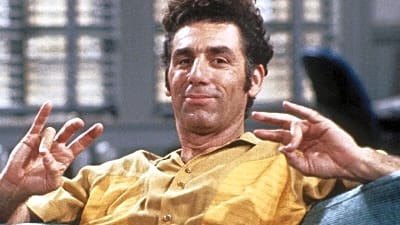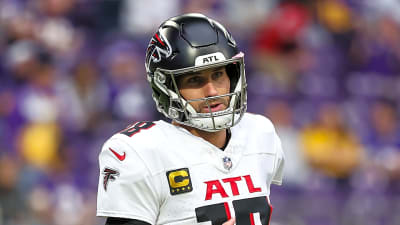
Maybe we've been reading this whole NIL rules thing wrong.
It requires a look back through history. For over 100 years there's been some kind of body to organize the schools to level the playing field for everybody.
Nobody has found anybody who could enforce those rules and make it stick. With very few exceptions of the death penalty and some bans, nobody really pays much attention to punishments. Despite what they say publicly it really doesn't bother them.
Now, conference commissioners say they’re confident about enforcing new rules around name, image and likeness (NIL) deals, but admit major questions remain about what happens when those rules are broken.
On Monday, ACC commissioner Jim Phillips and his counterparts from the SEC, Big Ten, Big 12, and Pac-12 met with reporters to discuss the new enforcement regime.
The group, which included Greg Sankey (SEC), Tony Petitti (Big Ten), Brett Yormark (Big 12), and Teresa Gould (Pac-12), all said the new framework represents progress.
The specifics are still being hammered out.
“We’re in the process of developing some of those rules and structure and overall implementation of that,” Phillips said. “Now that we have Bryan [Seeley] on board, I think we’ll be able to move a little bit quicker. But we want to get this right.”
Former MLB executive Bryan Seeley was named CEO of the new College Sports Commission on Friday, just hours after the settlement was announced.
His task is to lead enforcement on everything from revenue sharing to NIL deal vetting and roster limits. Starting June 7, athletes must report NIL deals of $600 or more to the Commission.
It will be interesting to see if everybody plays follow the leader on that without finding a reporting loophole. Schools have been good at finding them for decades.
The stakes are high. In 2025-26, each school will be allowed an annual cap of $20.5 million for athlete payments, a figure that will increase over the next decade. The new system is designed to bring stability and fairness to student-athletes, Phillips said.
“Our schools want rules, and we’re providing rules, and we will be governed by those rules," said Earmark. "If you break those rules, the ramifications will be punitive."
That said, the exact penalties for violations are still unclear. What may be even murkier is nobody knows if this honor system will have penalties that bite hard enough to make anybody really follow them.
To ensure oversight, accounting firm Deloitte and LBi Software will monitor salary cap management and run the NIL clearinghouse, known as NIL Go. The platform will review deals to ensure they serve a valid business purpose, rather than acting as recruiting inducements.
“If you want an unregulated, open system, just raise your hand and let me know,” Sankey told coaches and university presidents. “And universally, the answer is, ‘No, we want oversight. We want guardrails. We want structure.’”
With states passing their own NIL laws, commissioners say they need help from Congress to standardize the rules nationwide.
Sankey, who recently discussed the issue with former President Donald Trump and Notre Dame athletic director Pete Bevacqua, emphasized that “Congress exists to set national standards and we’re not going to have Final Fours and College Football Playoffs and College World Series with 50 different standards.”
Leaders across college sports have echoed this call.
“A patchwork of state laws will make it impossible to run national championships on a level playing field,” University of Notre Dame president Rev. John I. Jenkins told The New York Times earlier this year.
Despite the uncertainty, commissioners are bullish about the new model.
“What’s not debatable is that this new model does bring stability and fairness to student-athletes in college sports,” Phillips said. “We’ve been in an unregulated environment with no rules and no enforcement. We’re now going to have a foundation and structure laying out those rules.”
Some athletes and advocates remain cautious.
“It’s a positive step, but true fairness won’t come until athletes have a seat at the table in shaping these rules,” said Jason Stahl, executive director of the College Football Players Association, in a statement to ESPN.
The next few months will be critical, as the College Sports Commission works to finalize enforcement details and schools adapt to the new system.
For now, the commissioners’ optimism is interesting, but don't forget that's largely for public relations correctness.
“Progress over perfection,” Yormark said. “We’ll meet the challenges as they come.”
Maybe the biggest challenge will be finding an enforcer everybody can agree to put up with. Rules are one thing, following them something else.
If everybody had a track record of honesty, none of it would really matter.
More must-reads:
- What Steelers reportedly were not 'anticipating' with T.J. Watt contract saga
- Mets get best possible news on Kodai Senga
- The 'Most points off the bench in an NBA Finals game' quiz
Customize Your Newsletter
 +
+
Get the latest news and rumors, customized to your favorite sports and teams. Emailed daily. Always free!








